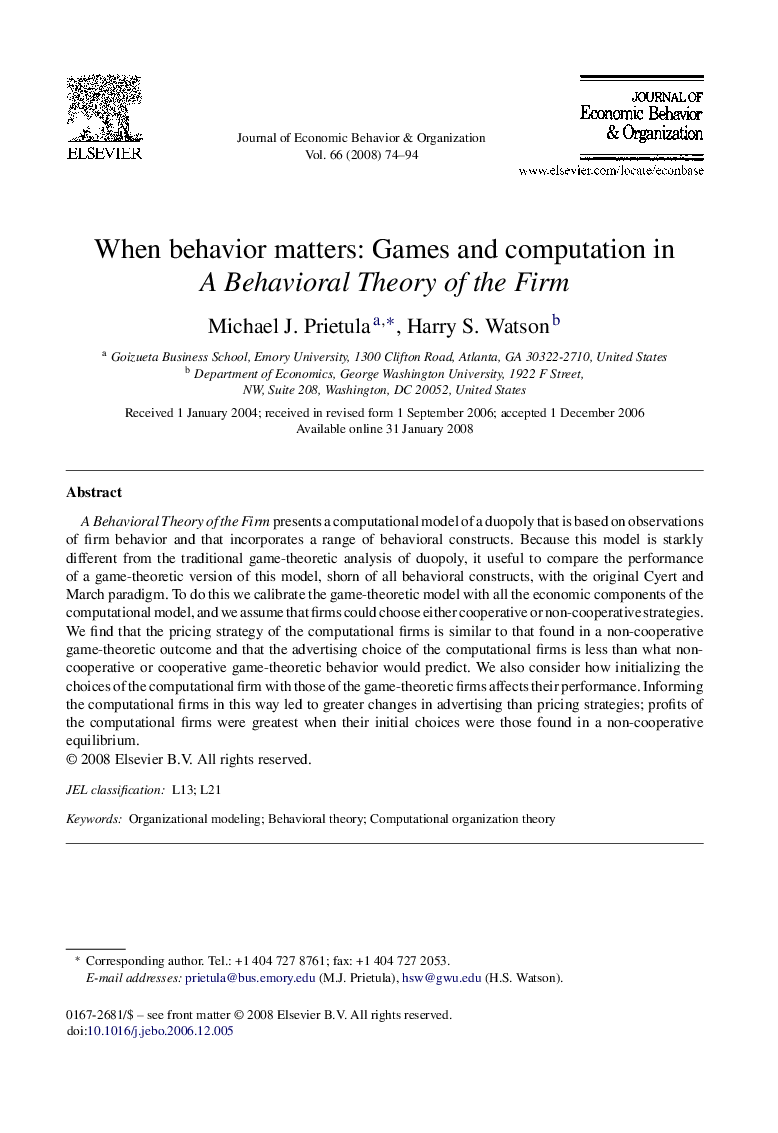| Article ID | Journal | Published Year | Pages | File Type |
|---|---|---|---|---|
| 884537 | Journal of Economic Behavior & Organization | 2008 | 21 Pages |
A Behavioral Theory of the Firm presents a computational model of a duopoly that is based on observations of firm behavior and that incorporates a range of behavioral constructs. Because this model is starkly different from the traditional game-theoretic analysis of duopoly, it useful to compare the performance of a game-theoretic version of this model, shorn of all behavioral constructs, with the original Cyert and March paradigm. To do this we calibrate the game-theoretic model with all the economic components of the computational model, and we assume that firms could choose either cooperative or non-cooperative strategies. We find that the pricing strategy of the computational firms is similar to that found in a non-cooperative game-theoretic outcome and that the advertising choice of the computational firms is less than what non-cooperative or cooperative game-theoretic behavior would predict. We also consider how initializing the choices of the computational firm with those of the game-theoretic firms affects their performance. Informing the computational firms in this way led to greater changes in advertising than pricing strategies; profits of the computational firms were greatest when their initial choices were those found in a non-cooperative equilibrium.
